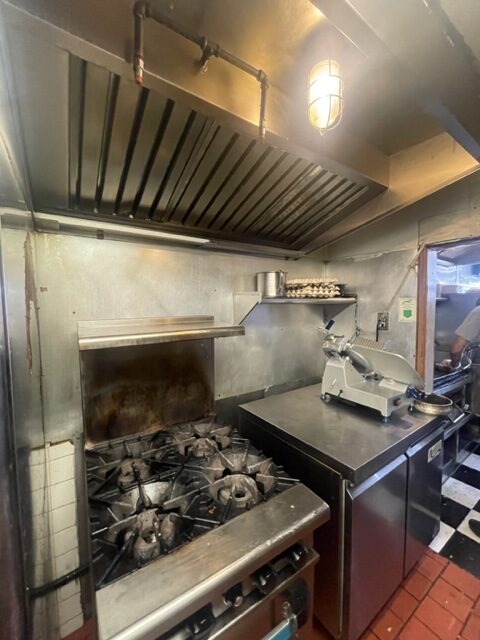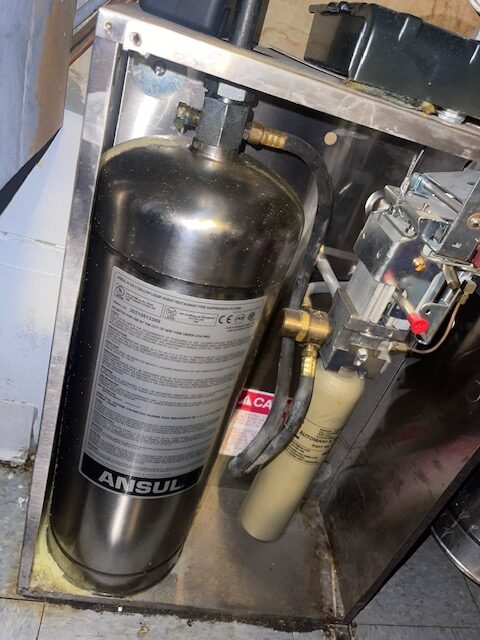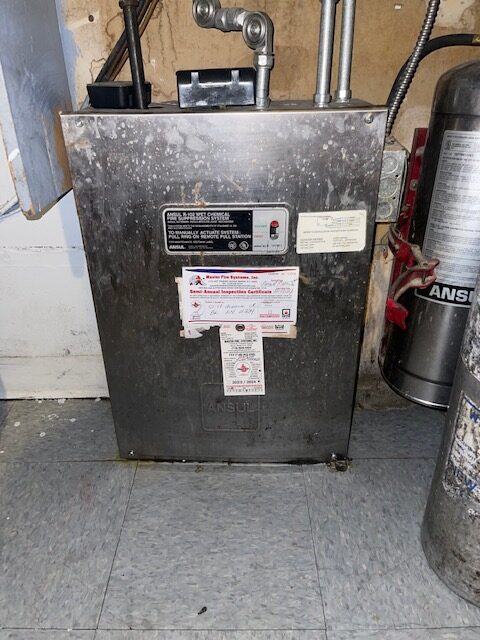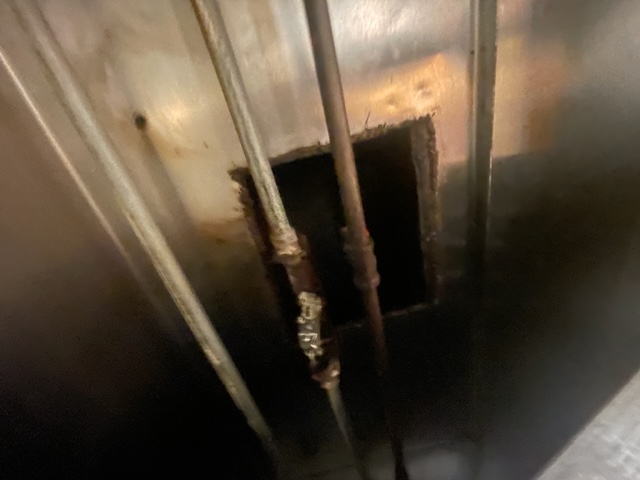How often does a restaurant fire suppression system in NYC require inspection?
Lorem ipsum dolor sit amet, consectetur adipiscing elit. Ut elit tellus, luctus nec ullamcorper mattis, pulvinar dapibus leo.
Reasons You Need Automatic Fire Suppression for Small Food Service Businesses

Running a food service business, whether it’s a large restaurant or a small bodega in New York, involves navigating similar challenges and risks. Both establishments require meticulous attention to detail in various aspects, including food quality, customer service, hygiene, and safety. Despite differences in scale, both types of businesses rely heavily on cooking equipment that poses significant fire hazards. High-heat appliances like ovens, grills, and fryers are staples in both settings, and the presence of flammable materials and the potential for human error further elevate the risk of fire. Therefore, regardless of size, the need for robust fire safety measures, particularly automatic fire suppression systems, is critical to ensure the safety of the premises, employees, and customers.
Fire Hazards in a Delicatessen
High-Temperature Cooking Equipment: The frequent use of ovens, grills, and fryers increases the likelihood of grease fires.
Electrical Appliances: Refrigerators, mixers, and other electrical appliances can short circuit, posing a fire risk.
Flammable Materials: Cooking oils, paper products, and packaging materials can easily ignite if exposed to high heat or open flames.
Human Error: Busy kitchen environments can lead to accidental spills, equipment misuse, or unattended cooking, all of which can trigger fires.
Benefits of Automatic Fire Suppression Systems
Immediate Response: These systems detect fires at their inception and deploy suppressants quickly, minimizing the spread and damage.
Comprehensive Coverage: They are designed to cover all major cooking areas and equipment, ensuring no part of the kitchen is left unprotected.
Reduced Downtime: Rapid fire suppression limits damage, allowing the business to resume operations faster, which is critical for small businesses reliant on daily revenue.
Compliance with Regulations: Installing a fire suppression system ensures compliance with local fire codes and insurance requirements, avoiding potential fines or operational shutdowns.
Safety of Personnel and Customers: Protecting staff and customers is a primary concern. These systems significantly reduce the risk of injury or loss of life during a fire incident.



Key Components of an Automatic Fire Suppression System
Detection Sensors: These are placed in strategic locations to detect heat, smoke, or flames and activate the suppression system.
Suppressant Agents: Commonly used agents include wet chemicals for kitchen environments, which are effective in smothering grease fires.
Nozzle Distribution: Nozzles are installed over cooking stations and appliances to ensure even distribution of the suppressant.
Control Panel: This central hub monitors the system’s status and triggers alarms in the event of a fire.
Manual Override: For added safety, a manual pull station allows staff to activate the system if automatic sensors fail to detect the fire.
Implementation and Maintenance
Professional Installation: It is essential to have the system installed by certified professionals to ensure it meets all safety standards and operates correctly.
Regular Inspections: Routine checks and maintenance are necessary to ensure the system remains in optimal working condition.
Staff Training: Employees should be trained on how to respond to fire alarms and use manual overrides if needed.
Look, for a delicatessen or any small food service business involved in commercial cooking, the risk of fire is a serious concern that cannot be ignored. Installing an automatic fire suppression system provides a robust solution to protect the business, its employees, and its customers. By ensuring rapid response to fire incidents, minimizing damage, and maintaining regulatory compliance, these systems play a critical role in the overall safety and sustainability of the business. Investing in such a system is not just a regulatory necessity but a proactive step towards safeguarding the livelihood and reputation of the business.

To see all the fire protection services action, visit our RECENT JOBS BLOG as well as our YOUTUBE CHANNEL for lots of helpful and informative videos. You can also follow us on Instagram at https://www.instagram.com/masterfireprevention/.
Remember, when it comes to safety and compliance, especially with respect to solid fuel cooking, and having pollution control units such as a SMOG HOG electrostatic precipitator operating at peak performance, Master Fire Prevention has the experience and the resources to get your commercial cooking operation up and running safely and compliantly.